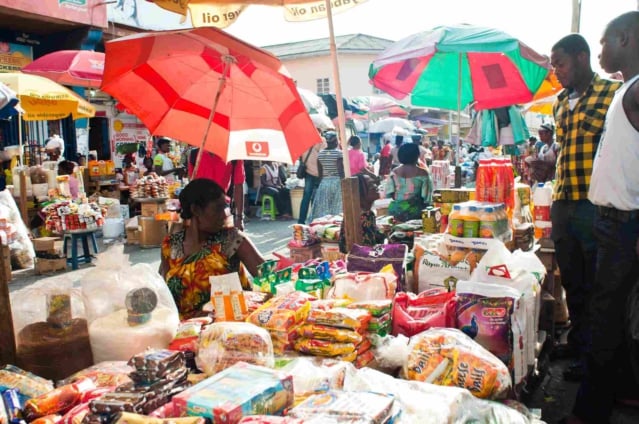The recent appreciation of the Ghana Cedi and the decrease in fuel prices have brought a glimmer of hope to the Ghanaian economy, yet the anticipated trickle-down effect on the prices of goods and services remains elusive. Economist Samuel Worlanyo Mensah attributes this disconnect to Ghana’s reliance on manual economic management practices. He argues that the absence of an automated system for economic analysis and decision-making hinders the seamless translation of positive macroeconomic indicators into tangible benefits for ordinary citizens. In essence, the structure of the Ghanaian economy prevents automatic price adjustments in response to favorable economic shifts, leaving consumers grappling with persistent high prices despite improvements in key indicators.
Dr. Mensah highlights the manual nature of price adjustments in Ghana, particularly within the transport sector. He points to the Ghana Private Road Transport Union (GPRTU)’s reliance on consultations and manual calculations to determine transport fares. This manual process creates a lag in the adjustment of fares to reflect falling fuel prices. The absence of automated pricing models prevents a swift response to market changes, delaying the expected relief for commuters. Consumers are therefore left bearing the burden of high transportation costs even when fuel prices decline, underscoring the inefficiency of the current system. This reliance on manual processes creates a bottleneck that stifles the potential benefits of positive economic developments.
The economist further cautions against expecting immediate reductions in the prices of goods and services. He suggests that the focus should be on achieving price stability rather than immediate price cuts. Dr. Mensah argues that stability itself can contribute to an improved standard of living. He emphasizes that while reduced prices are desirable, stability lays the foundation for sustained economic improvement. This perspective emphasizes the need for a long-term view of economic progress, where stability precedes and enables reductions in the cost of living. This nuanced approach acknowledges the complex interplay of economic factors and their impact on the everyday lives of Ghanaians.
Contrary to the predictions of economists, commuters in areas like Nungua and Tema express their frustration over the stagnant transport fares despite the drop in fuel prices. These commuters experience the disconnect between macroeconomic indicators and their daily realities firsthand. They highlight the financial strain of unchanged transportation costs, which continue to consume a significant portion of their income. Their experiences underscore the urgency for a more responsive system that ensures the benefits of positive economic shifts reach the general population.
The disconnect between falling fuel prices and stagnant transport fares reveals a critical flaw in the current system – the lack of accountability and transparency. Commuters are left questioning why transport operators have not adjusted fares to reflect the decreased cost of fuel. This lack of transparency erodes public trust and fuels skepticism about the effectiveness of economic policies. The absence of a clear mechanism for translating fuel price reductions into lower transport fares necessitates a review of the regulatory framework governing the transport sector. Such a review should aim to introduce greater transparency and accountability, ensuring that consumers benefit directly from favorable market conditions.
This situation calls for a comprehensive overhaul of Ghana’s economic management approach. The transition to an automated system for economic analysis and decision-making is crucial for ensuring that positive macroeconomic indicators translate into tangible benefits for citizens. Furthermore, reforming the transport sector to incorporate automated pricing models will ensure a more responsive and efficient system. Ultimately, these reforms will enhance transparency, accountability, and responsiveness within the economy, fostering greater trust and ensuring that the benefits of economic progress are shared by all Ghanaians. This will not only improve the standard of living but also strengthen the overall economic framework, laying the foundation for sustainable and inclusive growth.














